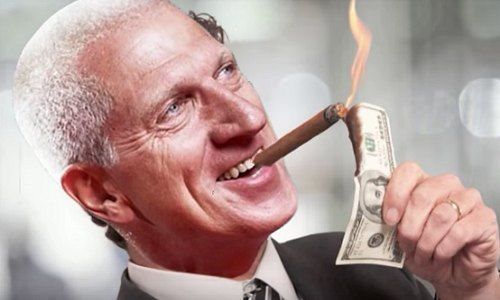The Fall of Switzerland's Uber-Banker
One of Switzerland's best-known bankers is being held in jail. His fall from grace shows how the once unbreakable fraternal ties in Swiss banking are no longer binding.
Pierin Vincenz was the bulwark of Swiss banking as well as its figurehead and public advocate for decades. This week, Zurich's prosecutor asked a court to put the former star banker and Raiffeisen CEO behind bars as investigators look for evidence in a probe alleging that Vincenz acted in bad faith, repeatedly (click here and here to read more about the investigation on finews.com).
His sudden fall from grace is a cautionary tale on the perils of mixing personal and business – a common practice in Asia. The blurring of lines between work and private raises parallels to 1MDB, where one banker admitted an elaborate scheme of personal profits.
Vincenz's story also illustrates how Switzerland's formerly strong bonds among finance – where bankers would rather close ranks than admit defeat – are fraying.
Industry Roiled
Until recently, it was unthinkable that a banker of Vincenz’s standing could be criminally investigated. Prosecutions of bankers in Switzerland are rare, and convictions are even scarcer: the last was eight years ago, when Swiss Life’s former finance chief, Dominique Morax, was convicted of stock manipulation.
Vincenz is well-known to a wider Swiss public: he frequently appeared at society events, granted interviews to newspapers and magazines, and wasn’t afraid to take on industry titans like UBS, where he began his career. The shock of two criminal complaints against him, both from firms he formerly worked for, has reverberated throughout the industry.
Unlike in the Morax case, where a stock market crash led to massive losses and revealed the wrong-doing, Vincenz’s criminal dilemma has more to do with a series of unlinked events last year. Though separate, together they formed a pattern which Vincenz eventually was no longer able to outrun.
Series of Unlinked Events
The banker’s alleged wrong-doing was unwittingly brought to light by a small cashless payments firm, Aduno, that Vincenz was instrumental in founding 19 years ago with a collective of Swiss retail banks.
The least toothy of Vincenz’s new enemies is Raiffeisen, a retail lender in Switzerland which was run by Vincenz until three years ago. The bank ordered three separate external reviews in 2016 – none of which turned up anything suspicious, the bank said. Nevertheless, current CEO Patrik Gisel quickly began distancing himself from his predecessor and mentor, culminating in the bank’s criminal complaint against Vincenz.
For his part, the former CEO said he was shocked at the probe, denied the accusations, and said he had always pursued the interests of the firms he had worked for.
Kept Ahead of Regulators
Prosecutors are focusing on Investnet, a private equity vehicle for small firms which Vincenz bought a stake in for Raiffeisen. After he left he bank, Vincenz also bought a stake in Investnet.
At Aduno, where Vincenz was chairman for 19 years, investigators accuse him of blurring the lines of personal investments and those for Raiffeisen on two separate takeovers that he was personally invested in as well as on behalf of Raiffeisen.
- Page 1 of 2
- Next >>


























